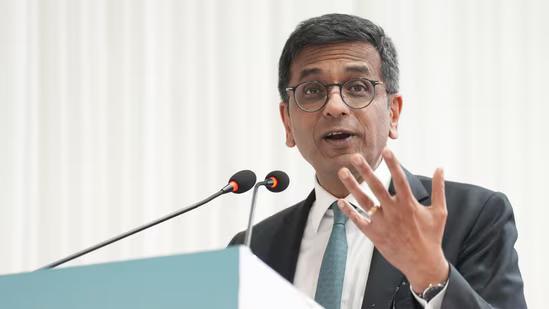 |
|
The outgoing Chief Justice of India, DY Chandrachud, has presented a nuanced and thought-provoking perspective on judicial independence. In a recent statement, he asserted that the concept of judicial independence cannot be solely defined by rulings against the government. This assertion stems from his own experience, where he faced criticism for being 'too independent' when he struck down the electoral bonds scheme, a decision that went against the Centre's policies.
Chandrachud's statement challenges the simplistic notion that judicial independence is synonymous with a judge consistently siding with the opposition or delivering verdicts unfavorable to the government. He argues that such a narrow interpretation fails to capture the complexity of judicial independence. According to him, the true essence of judicial independence lies in the ability of judges to render impartial judgments based solely on legal principles and the Constitution, regardless of who the parties involved are or the potential political ramifications of their decisions.
This perspective is particularly relevant in a democracy like India, where the judiciary plays a crucial role in upholding the rule of law and protecting the rights of citizens. The judiciary's independence from political influence is essential for ensuring a fair and just legal system. However, Chandrachud's statement reminds us that this independence should not be misconstrued as a mandate to act as a counterweight to the government. The judiciary's role is not to simply oppose the government but to uphold the Constitution and ensure justice for all.
The example of the electoral bonds case highlights the potential pitfalls of equating judicial independence with rulings against the government. While Chandrachud's decision to strike down the scheme was lauded by some for its 'independence,' others argued that it was politically motivated. This underscores the importance of a nuanced understanding of judicial independence and the need to avoid politicizing judicial decisions. Judges should be free to make decisions based on their understanding of the law, not on political expediency or public opinion.
Chandrachud's perspective is a valuable contribution to the ongoing discourse on judicial independence in India. It encourages a deeper understanding of the principles underlying this concept and emphasizes the importance of a judiciary that is not only independent but also impartial and accountable to the Constitution.
